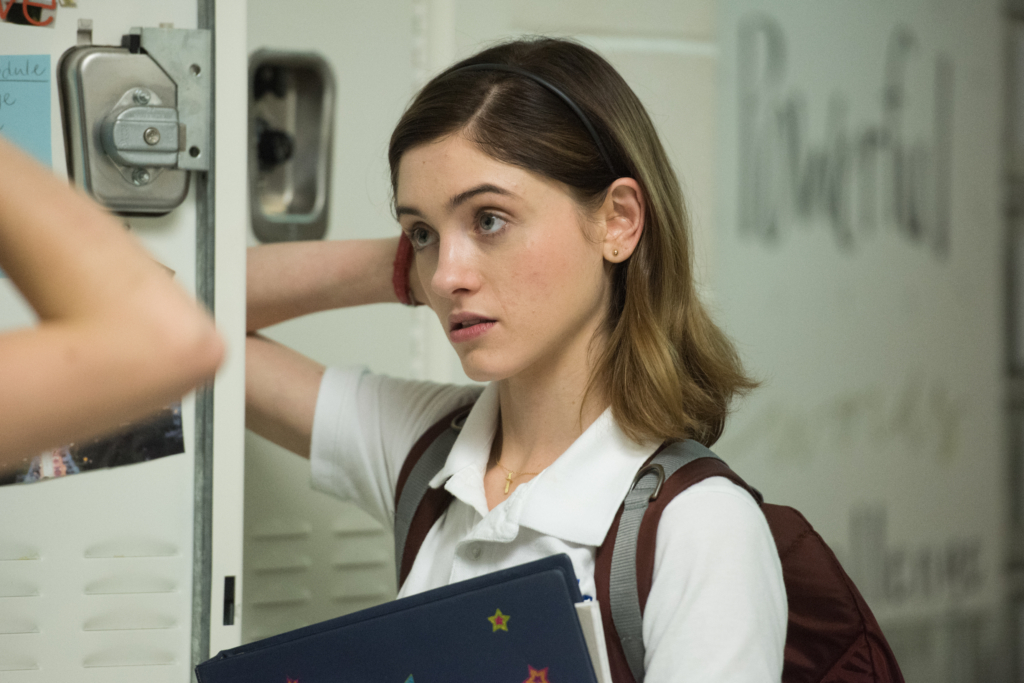
If you need a reminder of how much has changed in the past 19 years, search no further than in the opening scenes of Yes, God, Yes. Here, we find 16-year-old Alice (Natalia Dyer) hunched over a bulky PC, her eyes glued to the AOL Instant Messenger chat boxes so many of us knew so well. The year is 2001, back when the internet was not the consolidated empire it is now but more of an unkempt collection of city-states hemming in the wilderness. It was, perhaps, much easier in those days to stumble into a cybersex conversation on AIM, as Alice does.
She lives in a strict Catholic community in the Midwest. When Father Murphy (Timothy Simons) gives the kids a sex talk, he uses euphemisms comparing men to light switches (turned on easily) and women to ovens (needing time to preheat), and quizzes his pupils as to whether they know sex’s proper place (marriage) and purpose (children). Outwardly, Alice is the model of goodness and obedience, a student in whom her teachers place much trust, but, from the get-go, we see her as someone at odds with the world around her. She is genuinely surprised to discover that masturbation is a sin or that a friend might frown on her for rewinding Titanic to the sex scene. Furthermore, she lies to Father Murphy in confession.
Alice’s accidental introduction to cybersex coincides with the birth of a malicious rumor about her, one that is readily accepted by both students and teachers either as the truth or her own perverse invention. It is unclear where this rumor started, but it uses slang Alice does not understand: “tossing someone’s salad.” Thinking it will be good for her reputation, and wracked with guilt concerning her budding sexuality, she decides to attend a mysterious religious retreat, run by Father Murphy and staffed by some of the older kids at her school. One of them is Chris (Wolfgang Novogratz), a handsome older boy with whom she is instantly smitten.
If there are hackneyed and too-convenient turns of plot; if almost every character is portrayed shallowly (Alice’s mean friend, for instance, is not much more than that); if, like The Half of It, the film yields to some of the more embarrassing conventions of the high school film, it is nonetheless enjoyable and saved by Natalia Dyer’s strong, sweet, and nuanced performance. Playing the only character that has any depth, Dyer captures the mannerisms, physicality, and inner life of a teenager struggling to fit into a hostile community so precisely and with such individuality that there is nothing paint-by-numbers about Alice. It is encouraging to see Dyer branching out from Stranger Things, and one hopes she will continue to do so.
While Yes, God, Yes is fairly predictable, it captures well the feelings of adolescence, particularly the awkwardness of bonding retreats, with enough specificity to become endearing, in spite of its flaws. Like The Half of It, it’s fine comfort film for troubling times.






Leave A Comment